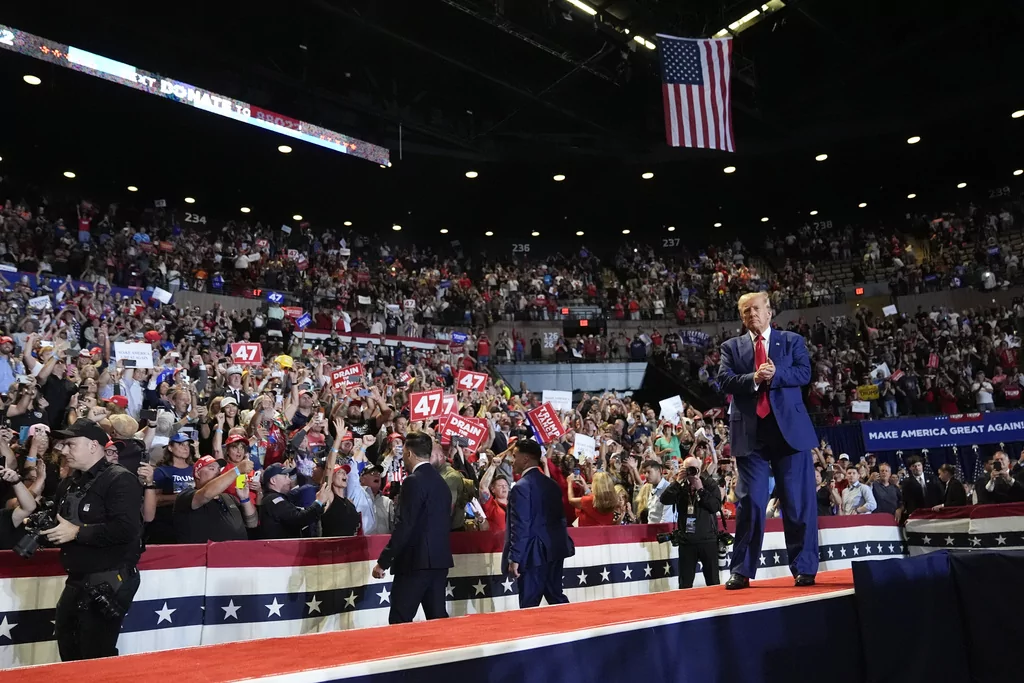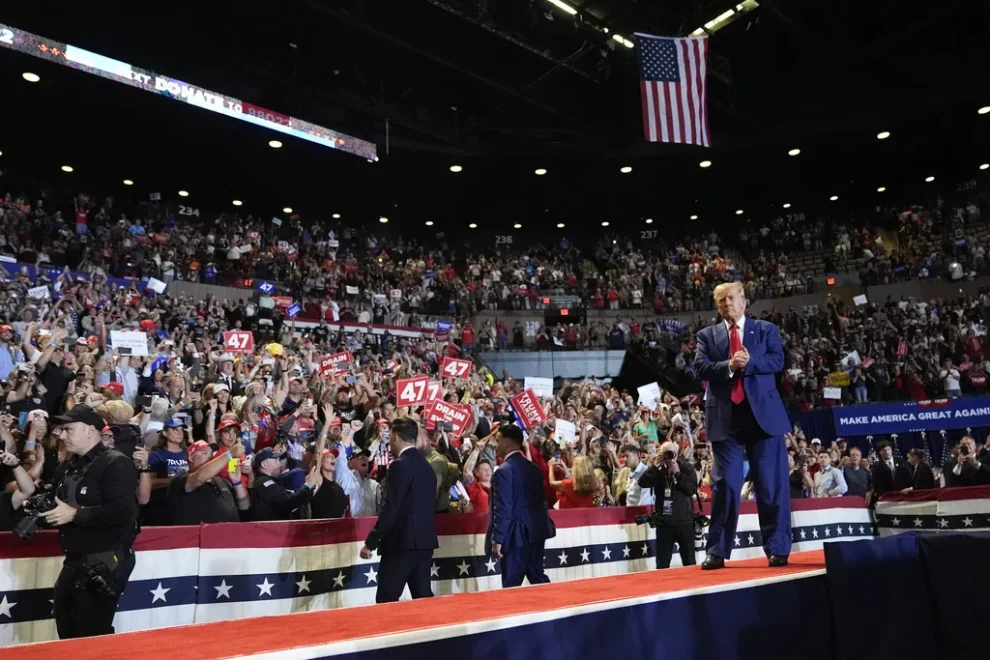Former President Donald Trump promised the country he would place a temporary cap on credit card interest rates if he returns to the White House.
Speaking to New York supporters at a Long Island rally, Trump announced his latest proposal to address the economy and a ballooning debt crisis facing voters.
“While working Americans catch up, we’re going to put a temporary cap on credit card interest rates. We’re going to cap it at around 10%,” he said to cheers. “We can’t let them make 25% and 30%.”
BREAKING: Trump announces that as president, he will immediately implement a temporary 10% cap on credit card interest rates
"We can't let them make it 25% and 30%."
Credit card interest rates are at a historic high under the Kamala-Biden regime. His simple plan will alleviate… pic.twitter.com/yENoVsqv1S
— George (@BehizyTweets) September 19, 2024
Trump didn’t elaborate on who would be eligible for the policy or offer a timeline on how long the reduced rates would last. The Trump campaign declined to comment on the policy.
Although a president likely wouldn’t hold the necessary authority to execute the policy himself, Congress has tried to take such an action before. Sen. Josh Hawley (R-MO), a Trump ally, introduced legislation to cap credit card interest rates last year. He introduced the measure as he criticized the government for being “quick to bail out” the “biggest banks” as “Americans are being crushed under the weight of record credit card debt.”
Other right-leaning groups have argued the measure amounts to a price control that would create shortages and favor prime borrowers at the expense of lower-income borrowers.
When the Biden administration similarly tried to lower credit card late fees earlier this year, a federal judge put a stop to his plans. “Every month that the credit card late fee rule is blocked will cost Americans over $800 million,” the White House warned following the ruling in May.
Trump’s pitch on credit card matters to New York voters comes as he fights to gain a foothold in the Democratic bastion.
“We are going to win New York,” he told thousands gathered in Nassau Coliseum. “I say to the people of New York: With crime at record levels, with terrorists and criminals pouring in, and with inflation eating your hearts out, vote for Donald Trump! What the hell do you have to lose?”
A Republican presidential candidate hasn’t won New York in 40 years. The most recent polling indicates Vice President Kamala Harris holds a wide lead in the state. Nonetheless, Trump has repeatedly waded into deep-blue areas, including the Bronx, where he held a massive rally earlier this year.

The voters he rallied in New York and people around the country are struggling with credit card debt. Three in 5 people across the country owe credit card debt even as nearly half of people have $500 or less in their savings accounts per a GOBankingRates survey.
Credit card interest rates reached record highs this year. At 30.45%, the number signals a sharp increase from 24.35% in 2021, according to Bankrate’s annual Retail Cards Study.
Total U.S. credit card debt sits at $1.14 trillion, according to data from the Federal Reserve.
Trump’s pledge to tackle credit card interest rates marks the latest item on the economic agenda he has unveiled in recent weeks. The former president indicated support for restoring SALT deductions, often criticized by fiscal hawks as a tax break for the rich, but one that has bipartisan support, especially among members from high-tax states such as New York.
His suggestion to restore the state and local tax reductions signals a major reversal from his economic agenda four years ago. His signature Tax Cuts and Jobs Act, commonly referred to as the “Trump tax cuts,” reduced the SALT deduction to $10,000, frustrating lawmakers in New York and California in particular.
CLICK HERE TO READ MORE FROM THE WASHINGTON EXAMINER
He has promised to eliminate income taxes on overtime pay and end taxes on Social Security benefits. Trump also announced a “no tax on tips” plan in June.
From the start of his campaign, Trump has pledged to stand firm on his 2017 Tax Cuts and Jobs Act. More than 80% of taxpayers received tax cuts through the TCJA, which lowered most individual income tax rates. The legislation expires next year.
























